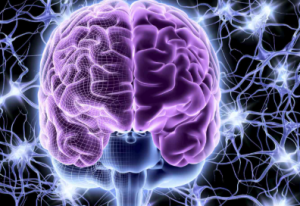Fun Facts About Your Nervous System That’ll Blow Your Mind
Your nervous system is basically running a 24/7 operation inside your body, and most people have no clue how wild it actually is. We’re talking about 86 billion neurons just in your brain alone, all firing away while you’re reading this.

Speed Demons
The fastest nerve impulses zip through your body at about 268 miles per hour. That’s faster than a Formula 1 race car during qualifying laps. But here’s the thing – not all nerves are created equal. Some of the slower ones crawl along at barely 2 mph, which is literally walking speed.
Your brain generates around 50,000 thoughts per day. Nobody really knows if that number is exact, but neuroscientists at the University of Southern California put it somewhere between 12,000 to 60,000. The variation depends on how you even define a “thought” in the first place.
The Energy Hog
Despite making up only 2% of your body weight, your brain gulfs down 20% of your total oxygen and blood supply. It’s running on about 12 watts of power – roughly the same as one of those old LED bulbs. That doesn’t sound like much until you realize supercomputers need millions of watts to simulate even a fraction of what your brain does naturally.
IBM’s Blue Gene supercomputer in 2013 needed 1.4 million watts to simulate just 1 second of 1% of human brain activity. And it took 40 minutes to do it.
Memory Isn’t What You Think
Your brain can theoretically store about 2.5 petabytes of information. For reference, that’s about 3 million hours of TV shows. The Human Brain Project in Switzerland spent years trying to map this stuff out, and they’re still nowhere near done.
But memory doesn’t work like computer storage at all. Every time you remember something, you’re actually reconstructing it. Studies from Northwestern University showed that memories change slightly every single time you recall them. Which means your “perfect” memory from childhood? It’s probably been rewritten dozens of times by now.
Your Second Brain
Here’s something that catches people off guard – you’ve got around 500 million neurons in your gut. That’s more than in the spinal cord of a cat. Scientists literally call it the “enteric nervous system” or sometimes just your second brain.
This gut-brain connection is why stress gives you stomach problems. The vagus nerve connects them, and 90% of those signals go FROM your gut TO your brain, not the other way around. Companies like Seed and Pendulum are now making probiotics specifically targeting this gut-brain axis.
Pain Is Complicated
Your brain itself can’t feel pain. Zero pain receptors up there. Neurosurgeons can poke around in there while you’re awake (which they do during brain tumor surgeries) and you won’t feel a thing. But your brain absolutely processes pain from everywhere else.
Chronic pain affects about 50 million Americans according to the CDC’s 2023 data, and scientists at Stanford developed a brain implant in 2022 that reduced chronic pain by 80% in early trials by disrupting pain signals. It’s still experimental but shows how much we’re learning about pain pathways.
The whole “you only use 10% of your brain” thing? Complete myth. PET scans and fMRI studies have shown we use virtually all parts of our brain, just not all at once. That’d be like having a seizure.
Sleep and Your Brain’s Janitor Service
During sleep, your brain shrinks by about 60% to flush out metabolic waste through something called the glymphatic system. Discovered by Dr. Maiken Nedergaard at the University of Rochester in 2012, this cleaning system is 10 times more active when you’re asleep.
One night of sleep deprivation can reduce brain volume temporarily. Multiple studies show sleeping less than 6 hours regularly might actually shrink your hippocampus over time, which is your memory center. Not great.
Neuroplasticity Never Stops
Your brain keeps changing throughout your entire life. London taxi drivers famously develop larger hippocampi from memorizing the city’s 25,000 streets – studies from University College London proved this back in 2000 and it’s been replicated multiple times since.
Even at 70 or 80, your brain can form new neural connections. It’s not as fast as when you’re young, but it happens. Learning a second language, playing an instrument, or even juggling can create measurable changes in brain structure within weeks.
Musicians who started before age 7 have a larger corpus callosum – the bundle connecting your brain’s hemispheres. Practice literally reshapes your brain.
The Phantom Limb Thing
About 80% of amputees experience phantom limb sensations. Your brain’s map of your body doesn’t immediately update when you lose a limb. V.S. Ramachandran at UC San Diego created the mirror box therapy in the 1990s to treat phantom pain, and it works by basically tricking your brain’s body map.
Some people can even feel their phone “vibrating” in a pocket when it’s not there. Psychologists call it “phantom vibration syndrome” and studies show anywhere from 68% to 90% of people experience it.
Multitasking Is a Lie
Your brain can’t actually multitask. It rapidly switches between tasks instead, and every switch costs you time and accuracy. Research from Stanford in 2009 showed heavy multitaskers are actually WORSE at filtering out irrelevant information than people who focus on one thing.
It takes an average of 23 minutes and 15 seconds to fully refocus after an interruption, according to Gloria Mark’s research at UC Irvine. So every time you check your phone while working, you’re killing almost half an hour of productivity.
The nervous system is basically this incredibly complex network that we’re still figuring out. It’s estimated we understand maybe 10% of how it really works. Which is kind of humbling when you think about it – we can land robots on Mars but still don’t fully get what’s happening inside our own heads.